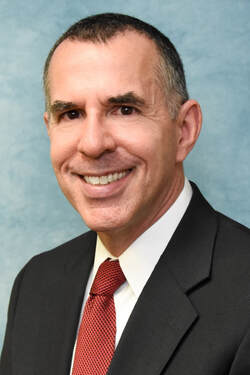Letter from the Editor: What to Do After a Hurricane

Dear Readers,
As we know all too well, the aftermath of a hurricane can be as overwhelming as the storm itself. Once the winds have calmed and the floodwaters have begun to recede, the real work of recovery begins. It’s during this time that our communities come together to rebuild, heal, and move forward.
Whether you are impacted directly or wanting to help others, here are some things you can do in the crucial hours and days following a hurricane:
Prioritize Safety
Your first concern after any major storm should always be safety. Be cautious when venturing outside, as there may be downed power lines, debris, and other hazards. Stay informed by listening to local authorities and following their instructions regarding when it is safe to return to your home or neighborhood.
Assessing the Damage
Once it’s safe, take a careful look at your home and property. Document everything with photos or videos before starting any cleanup or repairs. This documentation will be vital for insurance claims. Be sure to check for any structural damage, gas leaks, or electrical hazards before turning the power back on.
Communicating with Loved Ones
Reach out to family and friends as soon as possible to let them know you’re safe. In times like these, communication networks can be overloaded, so try using text messaging or social media if phone calls aren’t going through.
Filing Insurance Claims
One of the most stressful tasks after a hurricane is dealing with insurance claims. As mentioned, photos and videos of damage are key to expediting this process. Be persistent in contacting your insurance company and keep detailed records of all communications.
Cleanup and Repair
Once everything has been documented, begin the cleanup process. Remove any water-damaged items, as mold can begin growing within 24-48 hours. Seek professional help for any significant repairs, and be wary of scammers or contractors offering services at inflated prices.
Emotional Recovery
Hurricanes take a toll not only on our homes but also on our mental health. It’s important to give yourself and your family time to process and recover emotionally. Seek support from loved ones and consider reaching out to a counselor or support group if the stress becomes overwhelming. HR Florida partner Villyge can help. See their article in this month’s Newswire. Go to www.Villyge.com
HR Florida State Council Disaster Recovery Fund
The HR Florida State Council Disaster Recovery Fund aims to provide financial assistance to Florida based SHRM-affiliated chapters or members who are adversely affected by natural disasters or other catastrophic events. Explore HR Florida Disaster Recovery Fund – HR Florida State Council for the criteria for selection, the online application, and other helpful resources.
Share Your Personal Experience
I invite you to offer your own advice for our readers. What has worked for you? Whether the support was as a recipient or provider, we’d love to hear from you. Please send suggestions to [email protected].
Conclusion
In the face of such devastating events, the strength and resilience of our communities always shine through. Together, we can rebuild stronger and more prepared for the future.
Stay safe, stay strong.